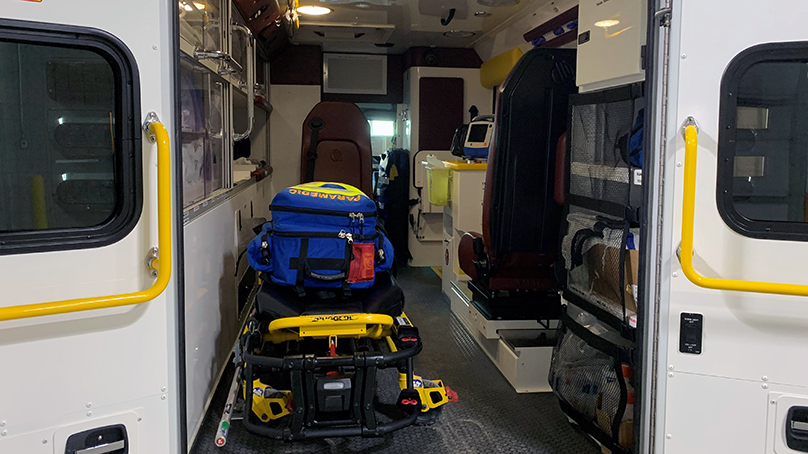Prepared for anything: How WFPS paramedics help you when you call 911
May 28, 2021

No one wants to have to travel in the back of an ambulance as a patient, but if you do, it is important to remember all of the equipment packed inside of emergency vehicle is there to help you.
Russ McKenzie, a Winnipeg Fire Paramedic Service (WFPS) Advanced Care Paramedic Practitioner (ACPP), has been working on ambulances in Winnipeg for 21 years, and he knows nerves and anxiety are common.
“If you’re nervous when you’re accessing medical care, that’s okay. We always try to tell patients what is going on so they have the information they need,” said McKenzie.
The WFPS responds to more than 90,000 medical calls each year in Winnipeg. These calls often represent a person’s worst day, and crews are trained to provide the best care possible.
In Winnipeg, ambulances are a contracted service, and units have equipment for most types of medical emergencies. Crews have supplies and training to respond to airway issues, major traumas, substance use incidents, cardiac events and strokes. Paramedics can also give medications orally, intravenously, or by inhalation. They have access to personal protective equipment (PPE) to protect both patients and paramedics.
When you call 911, the communications operators and dispatchers will ask questions to ensure the right resource is sent to you as quickly as possible.
“In our integrated model, paramedics respond to emergencies in ambulances, fire trucks, or SUVs. When paramedics arrive, we do an initial assessment and determine the best emergency treatment plan for each individual case,” said McKenzie.
Often before an ambulance heads to a hospital, paramedics will start treatment, such as an IV, for the patient inside the ambulance, getting them prepared for what may be needed at the Emergency Department so when they arrive, the lifesaving treatment is often already underway.
Each year, WFPS crews respond to about 25 emergency births and many calls involving children.
The WFPS employs Paramedic District Chiefs and ACPPs like McKenzie who have additional training to respond to childbirth emergencies and pediatric events.
“Every day is different for a paramedic and we go to different calls each shift, from a person who has slipped and fallen, to a person having chest pain, to major trauma incidents, to a vehicle collision, and to palliative care situations,” said McKenzie. “That’s what I like about this career. I never know what my day will be like, and every shift we get the chance to make a difference in someone else’s life.”
